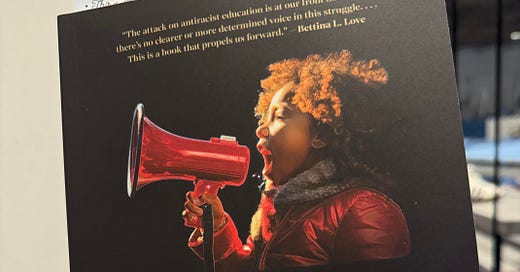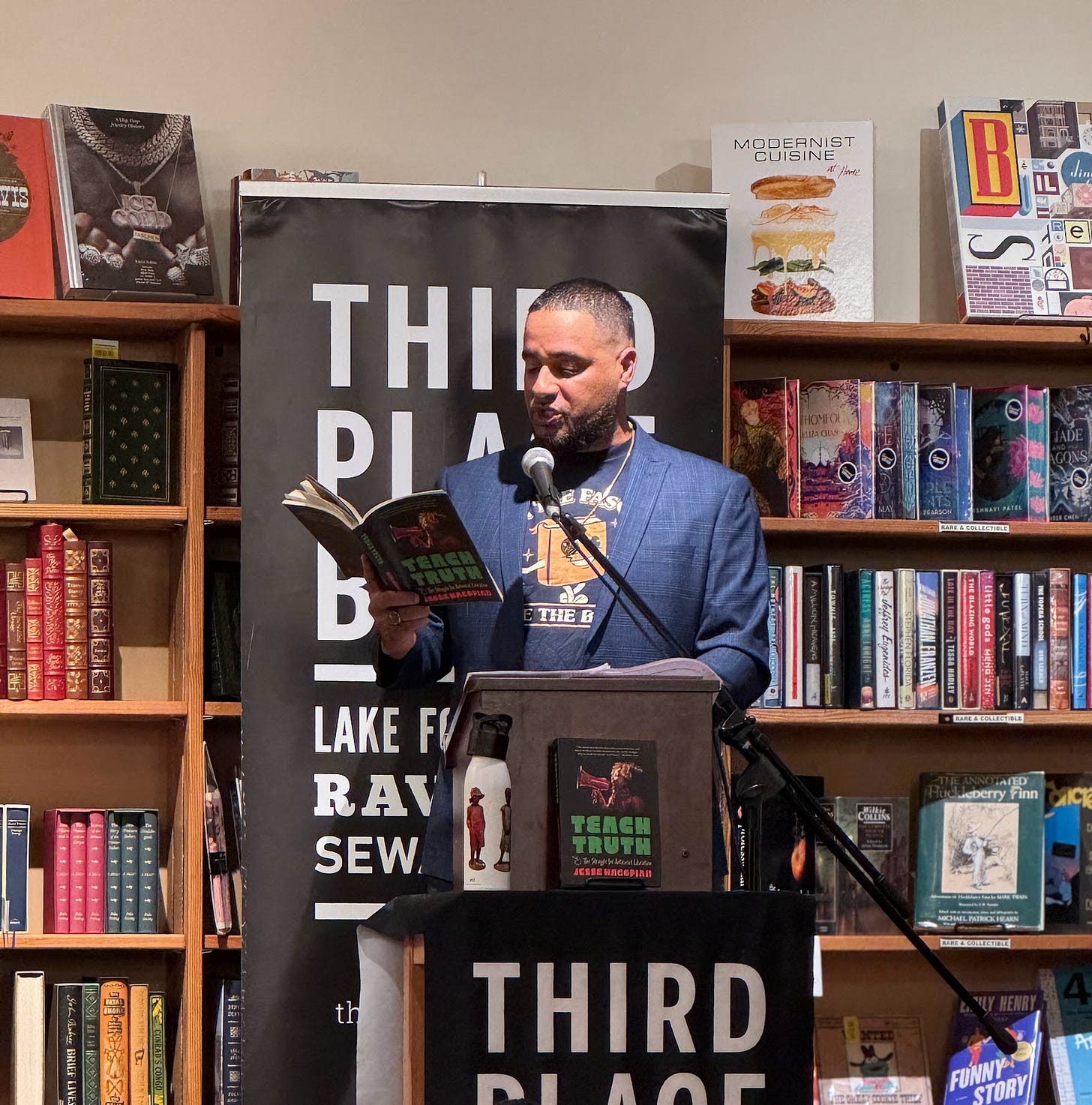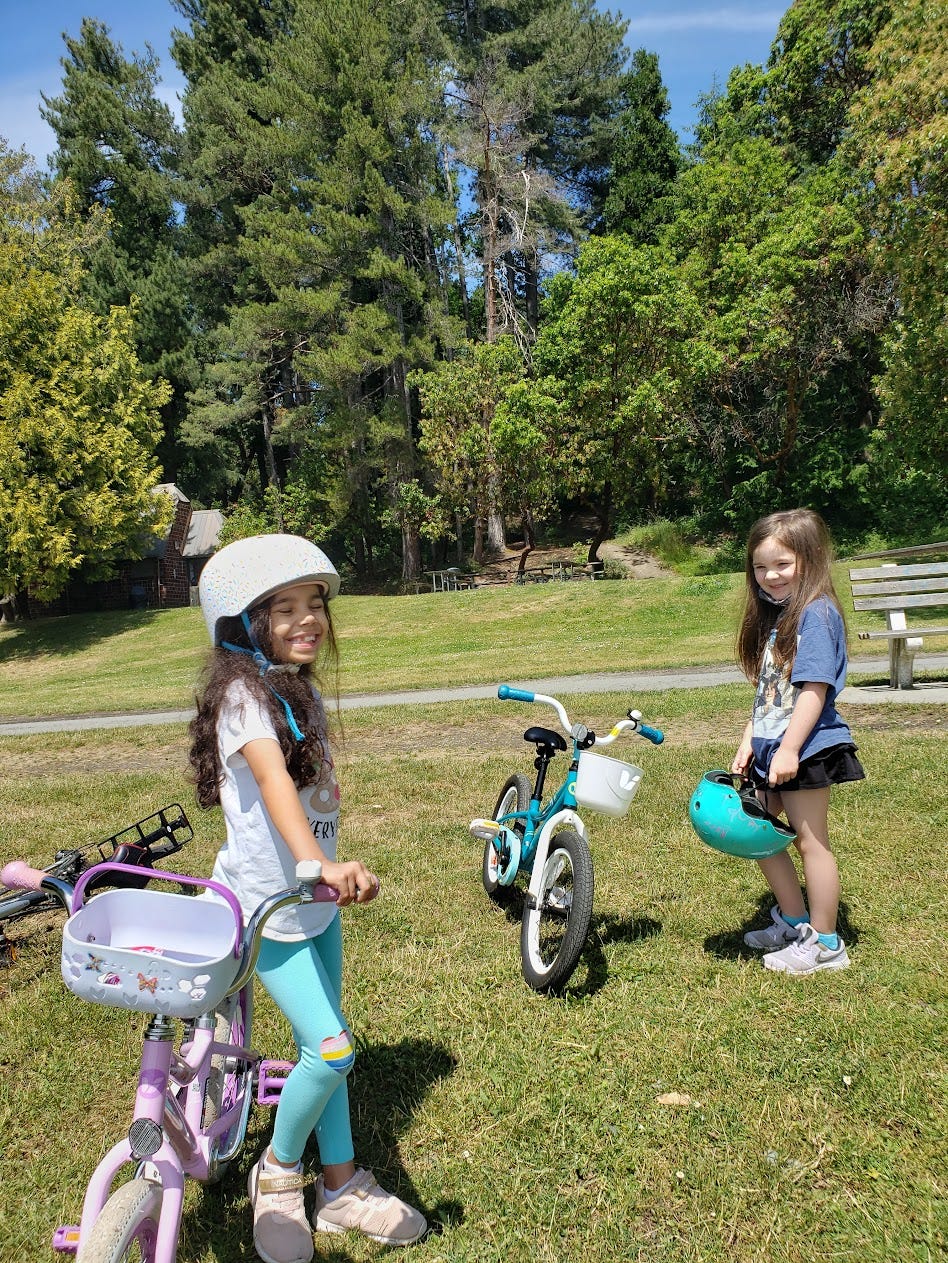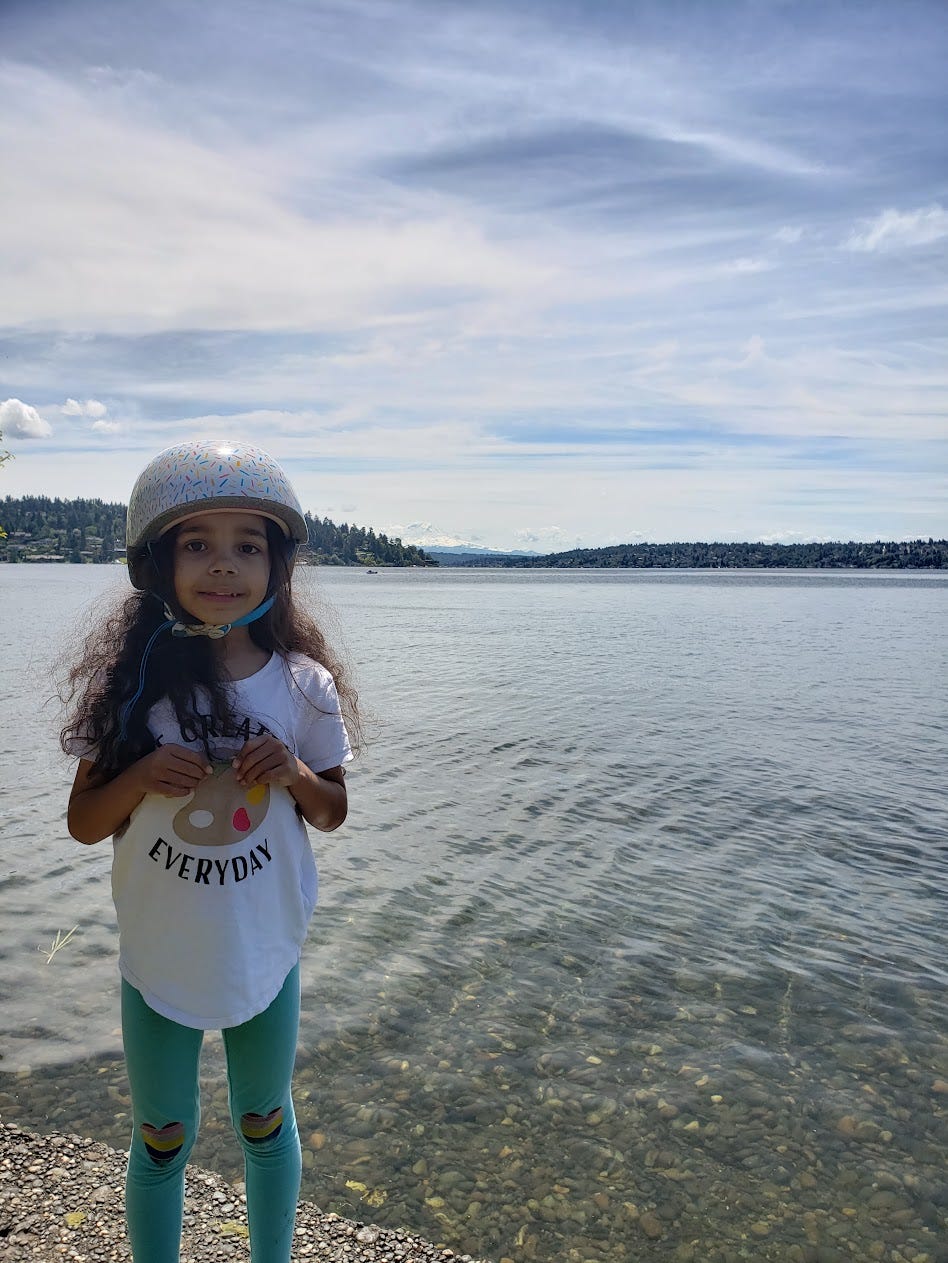A book to read: TEACH TRUTH: THE STRUGGLE FOR ANTIRACIST EDUCATION, by Jesse Hagopian
Imagine if every single tweet, post, article, or hushed whisper you’ve ever heard about teachers being attacked for teaching about racism was compiled in one place.
Okay, stop imagining. It’s here:
Jesse Hagopian’s TEACH TRUTH: The Struggle for Antiracist Education reads like a firehose of bad news. He covers Ron DeSantis’s hateful speech clips, Moms for Liberty book ban lists, and all Ryan Walter’s terrible ideas across these 200+ pages. Reading this book is like reading a compilation of every educational-themed doom scroll I’ve ever gotten sucked into.
Author Jesse Hagopian is a Seattle mainstay in the fight for social justice in education. Back when he taught at Garfield High School in Seattle, I used to run into him at MLK rallies and meetings about abolishing high-stakes testing. I don’t think he is a classroom teacher anymore, as he’s busily writing curriculum and books.
Teach Truth is not an easy read, but a necessary one. The book just came out1 and was obviously written before the beginning of the 2nd Trump administration, so Hagopian’s writing about attacks on DEI programs and defunding public education in favor of for-profit charter schools have only escalated.
The book’s relentless stories about teachers getting fired for pointing kids toward libraries where banned books can still be checked out, or daring to tell students that white supremacy was harmful, are interspersed with stories of teachers who are still striving to give students an antiracist education. Hagopian tells the story of how high school students in Pennsylvania organized a schoolboard protest and successfully reversed a book ban. He writes about “Teach the Truth” tours in Florida takes students to historically signification places to the Black freedom struggle. He introduces and explains new phrases:
Truthcrime: An act where truthful teaching has been outlawed
Uncritical race theory: systems of belief that unquestioningly subscribe to prevailing view on race and reinforce existing racial power relations. Uncritical race theory denies that racism exists…
If I were to push back on anything in this book, it’s the overall vibe of the book that assumes teachers who discuss slavery and racism are ALWAYS right (because they are the truth tellers!) and everyone else is ALWAYS wrong. I teach about racism all the time, but calling myself a “truth teacher” seems a bit naïve. I do my best, but I have no idea if I’m teaching history “accurately.” How can any of us know such a thing?
What do I really know about Taytu Betul’s personal motives for resisting Italian colonial forces? I can make the likely guess that she didn’t want Italians colonizing Ethiopia, and of course I share her story with my students. But, what do I REALLY know about her? Aside from online articles, I’ve only read one academic book that features her. Am I teaching the truth about her life? I have no idea. I certainly wouldn’t presume to call myself a “truth teller.”
Of course, the best way to understand history is to read more about history, which is exactly what Jesse Hagopian is advocating for. So perhaps this pushback is purely a semantical exercise. I get that Hagopian is advocating for social justice teaching, not diving into what it means to be a historian. But still, my 2nd favorite2 historian, Annette Laing is always in my head, reminding me that:
…history is always revisionist, despite what you've heard…
A lesson to teach: The Haitian Revolution
While teaching students about a wide variety of events, people, and perspectives is important, it’s also important for us teachers to continually teach ourselves. This is one of my favorite parts of being a history teacher. I consider it part of my job to always be reading and learning history, so when I curl up with a new book about the Aztec Empire I don’t have to feel guilty about not grading or writing or planning lessons. Reading counts as work….it’s just really, really enjoyable work.
I first realized this during my first year as a teacher.
I didn’t know about the Haitian Revolution when I started teaching at a middle school in West Las Vegas. I’d never learned that enslaved people resisted slavery. All my college history classes had been about the European Enlightenment, European wars, and European Revolutions.
I knew nothing.
When I “taught” my mostly Black students about slavery, they often responded by saying that they would have fought back, they would have refused to be enslaved, and they would have fought to the death if needed.
“You couldn’t have,” I said, incorrectly. “It just wasn’t possible at the time.”
My students, being excellent historians, were skeptical.
So we started researching.
My students were right. I was wrong.
Rebellions, revolutions, and resistance were everywhere and it was high time I started learning about it. After six years of college, my real education finally began. I read every book I could find about the Haitian Revolution, shocked at this whole aspect of history I’d missed.2
I talk about the experience in this podcast:
If you are interested in teaching the Haitian Revolution, here are some ideas:
My students read FREEDOM SOUP, DEAR HAITI LOVE ALAINE, they read a few pages from two adult non-fiction books (AVENGERS OF THE NEW WORLD and THE COMMON WIND), and they looked at some primary sources in SUGAR CHANGED THE WORLD.
Here are the book guides that students complete.
Here are 14 images that depict aspects of Haitian history. I print out several copies of these images (In color! I hope you have a secret color printer somewhere in your building), pair up students, and give a set to each pair. Students lay out the pictures, arrange them in a timeline, and transcribe that timeline onto their paper. Then, they choose two images to further analyze. Here is the student handout.
A place to explore: Third Place Books and Seward Park
I went to see author Jess Hagopian talk about TEACH TRUTH at Third Place Books.
Third Place Books opened in Lake Forest Park (a neighborhood just north of Seattle) in 1998 with the belief that we humans need “third spaces” like town squares and community hubs where people can come together. True to this spirit, adjacent to the bookstore is a huge common room circled by restaurants, a life-sized chess board, and a stage for author events. My daughter and I saw Alan Gratz there on his book tour for his latest MG book HEROES.
In 2016, another location opened up in Seward Park, a neighborhood in Seattle’s South End. Like the other location, this bookstore also has an adjoining common space and places to buy food and beer. The author stage is in the back of the bookstore. If the event is popular (as this one was!), overflow folding chairs are tucked, charmingly, between the stacks of history books.
As much as I love Third Place Books, the crowning jewel of the Seward Park neighborhood is…Seward Park. The actual park is a small peninsula that sticks out into Lake Washington. The 2.4-mile paved trail around the perimeter of the park is a perfect place to run or bike.
The hilly interior of the park features a maze of interconnected rugged trails (watch out for poison ivy). There are swimming beaches, an amphitheater, historic homes, picnic shelters, a busy playground, and excellent Mt. Rainier views on clear days.
Happy teaching, traveling, and reading! See y’all next Sunday.
Affiliate book links in this newsletter are through Bookshop, a book-buying platform that gives independent bookstores tools to compete online and maintain their presence in local communities. If you purchase books via the links in this newsletter, you’ll are financially supporting me AND your local independent book store, so thank you!
January 2025
Sorry Annette, nobody can beat Adam Hochschild for me.







Avengers of the New World and The Common Wind are probably my two favorite books on the Haitian Revolution!
You’ve got me excited about this book! Once I get it, I may have to move it to the top of my TBR list. BTW: have you heard of or used the Toussaint Louverture DBQ? It leads to some great discussions.
https://www.murrieta.k12.ca.us/cms/lib/CA01000508/Centricity/Domain/1739/Student%20Toussaint%20Louverture%20with%20questions.pdf